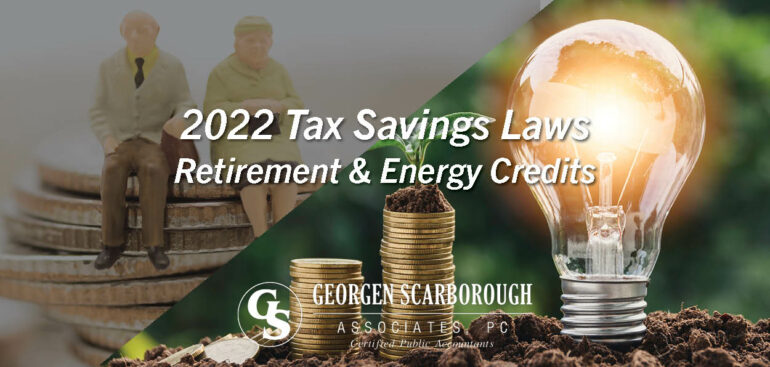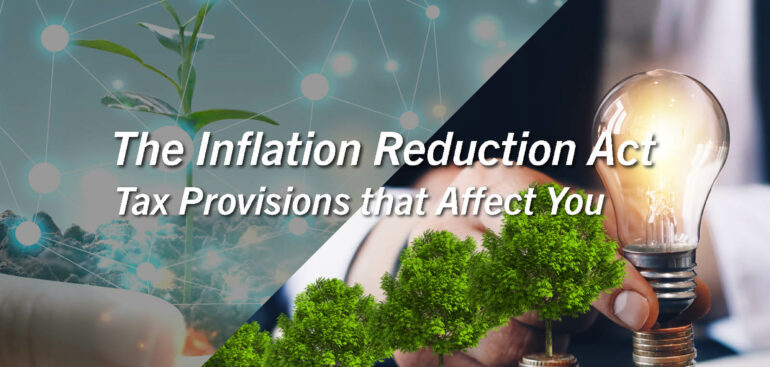Being aware of tax savings laws passed in 2022 can help you plan for the future and make good financial decisions. Congress passed two laws in 2022 to help create incentives for Americans who are interested in purchasing clean vehicles and making decisions on planning for retirement: The Inflation Reduction Act of 2022 and the SECURE 2.0 Act, respectively. Learn more about your eligibility for tax credits and how you can increase retirement savings here.
The SECURE 2.0 Act
The SECURE 2.0 Act makes notable changes to qualified retirement plans. Here are the key takeaways about the new law from fidelity.com:
- The age to start taking RMDs increases to age 73 in 2023 and to 75 in 2033.
- The penalty for failing to take an RMD will decrease to 25% of the RMD amount, from 50% currently, and 10% if corrected in a timely manner for IRAs.
- Starting in 2024, RMDs will no longer be required from Roth accounts in employer retirement plans.
- Catch-up contributions will increase in 2025 for 401(k), 403(b), governmental plans, and IRA account holders.
- Defined contribution retirement plans will be able to add an emergency savings account associated with a Roth account.
Managing your finances responsibly helps you maintain a good state of mind. It is a good idea to consult your financial advisor or tax professional to get the best advice on how to make the most of your financial situation by learning how the most recent changes in tax law can be beneficial for you. To read more about the specifics of the SECURE 2.0 law, visit: https://www.fidelity.com/learning-center/personal-finance/secure-act-2
Tax Credits and Incentives for Energy Efficiency
The Inflation Reduction Act of 2022 offers new federal income tax credits applied retroactively through 12/31/2022. And updates will be applied for 2023 and remain effective through 12/31/2032. Its savings for homeowners can provide up to $3,200 annually to lower the cost of energy-efficient home upgrades by up to 30 percent. It also details savings for home builders and commercial building owners. To see what kinds of green improvements to your home are eligible for tax credits, visit this link: https://www.energystar.gov/about/federal_tax_credits/federal_tax_credit_archives/2022_tax_credit_information
Credits for New Clean Vehicles
You may qualify for a credit of up to $7,500 under Internal Revenue Code Section 30D if you buy a new, qualified plug-in EV or fuel cell electric vehicle (FCV) in 2023 or after. However, there are a number of qualifications that must be met to be eligible. This is in regard to who qualifies and what the criteria of a qualified vehicle are. Visit this link https://www.irs.gov/credits-deductions/credits-for-new-clean-vehicles-purchased-in-2023-or-after to learn more.
To see the list of Qualified Manufacturers of the vehicles currently eligible for a credit, visit this link: https://www.irs.gov/credits-deductions/manufacturers-and-models-for-new-qualified-clean-vehicles-purchased-in-2023-or-after
Georgen Scarborough Associates is committed to staying informed of the most current tax laws to offer its clients the best advice so that they can maximize their tax returns. Please feel free to share this page with anyone you know who can benefit from learning this information.


